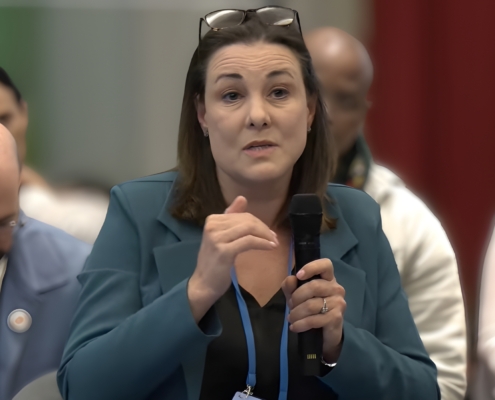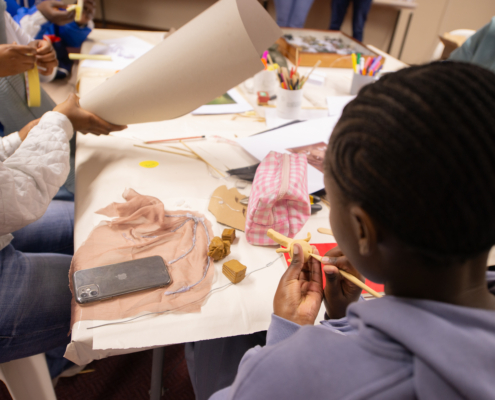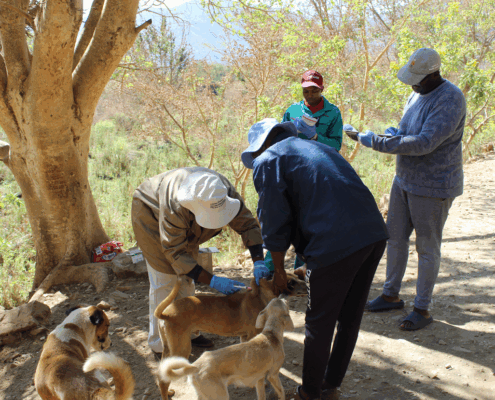 https://www.futureafrica.science/wp-content/uploads/2025/11/Photo-World-Health-Summit.jpg
1400
2500
Lerato Mpetshwa
https://www.futureafrica.science/wp-content/uploads/2024/08/logo.jpg
Lerato Mpetshwa2025-11-24 08:57:542025-11-24 08:57:54Future Africa’s One Health Chair strengthens Africa’s voice in global health leadership
https://www.futureafrica.science/wp-content/uploads/2025/11/Photo-World-Health-Summit.jpg
1400
2500
Lerato Mpetshwa
https://www.futureafrica.science/wp-content/uploads/2024/08/logo.jpg
Lerato Mpetshwa2025-11-24 08:57:542025-11-24 08:57:54Future Africa’s One Health Chair strengthens Africa’s voice in global health leadershipOne Health
One Health is part of the Future Africa research themes and the University of Pretoria strategic plan. The definitions differ widely, but most agree it involves a collaborative, multisectoral, and transdisciplinary approach to achieve optimal health outcomes and recognise the interconnection between people, animals, plants, and their shared environment. Africa has unique challenges, and a One Health approach must consider the context locally, regionally and globally. Historically “One Health” has been mostly associated with emerging infectious diseases, food security and antimicrobial resistance; however, it is a much broader approach in collaborative effort and disciplines. The Chair is instrumental in supporting and expanding One Health transdisciplinary research and activities across the University of Pretoria departments and faculties and between institutions, countries and continents. The Chair provides leadership and creates opportunities and resources to enable this, and by bringing people together, real-world problems and changes in behaviour through transdisciplinary thinking will occur.
The definition is based on One Health Foundational Principles
- Equity between sectors and disciplines
- Sociopolitical parity (all people are equal and deserve equal rights and opportunities), inclusion and engagement of communities and marginalized voices
- Socioecological equilibrium that seeks a harmonious balance between human-animal-environment interaction and acknowledging the importance of biodiversity, access to sufficient space and resources, and the intrinsic value of all living things within the ecosystem
- Stewardship and the responsibility of humans to adopt sustainable solutions that recognise the importance of animal welfare and the integrity of the whole ecosystem, thus securing the well-being of current and future generations
- Transdisciplinarity and multisectoral collaboration which includes all relevant disciplines, both modern and traditional forms of knowledge, and a broad representative array of perspectives.
Future Africa is aligning with these strategic directions of One Health including the One Health Joint Plan of Action (OH JPA)2 that aims to create a framework to integrate systems and capacity for effective and efficient prevention, prediction, detection, and response to health threats. In addition, we follow the OHHLEP Theory of Change to guide the implementation of One Health initiatives across the University, in South Africa, on the African continent, and globally. This theory emphasises the need for collaboration, communication, and coordination between various stakeholders, including academia, policymakers, researchers, health professionals, and community members.
The One Health Research Chair
Professor Wanda Markotter occupies the Future Africa Research Chair on People, Health, and Places (One Health). She also serves as the Director of the Centre for Viral Zoonoses (UP-CVZ) within the Faculty of Health Sciences at the University of Pretoria. In addition, Prof Markotter holds the DSI-NRF South African Research Chair in “Infectious Diseases of Animals ” (Zoonoses). Her interdisciplinary research programme focuses on bat pathogens and predicting and preventing the risk of spillover. In 2021 she was appointed as the Co-Chair of the One Health High-Level Expert Panel (OHHLEP) advising the World Health Organisation (WHO), World Organisation for Animal Health (WOAH), Food and Agriculture Organization (FAO), and the United Nations Environment Programme (UNEP). She is also involved in several One Health activities with a pan-Africa focus.
The Research Chair on One Health aligns with the four focus areas of Future Africa:
- Promoting transformative research in and for Africa
- Developing transformative research leadership capacities
- Building transformative global partnerships for African Research
- Fostering a culture of dialogue and action

Research Chair
Prof Wanda Markotter
Future Africa
Community Engagement Officer
Dr Tedson Nkoana
Future AfricaOur Current Programmes
The Food Systems Transformation in Southern Africa for One Health (FoSTA Health)
This project is funded by the EU through a partnership with the University of Leeds and is focused on exploring emergent pathways of transformation in southern African food systems with a One Health focus. As part of this project, Work Package 5 (WP5) aims to develop inclusive visions and action plans for achieving positive One Health outcomes in southern Africa, and this work package is shared between South Africa and Zambia. The South African focus will be on the meat food system, specifically the beef and pork value chain, including informal and formal markets and their intercept. For more information, visit (https://cordis.europa.eu/project/id/101060887)
The Capacitating One Health in Eastern and Southern Africa (COHESA)
The Capacitating One Health in Eastern and Southern Africa (COHESA) aims to equip the workforce with essential core and technical competencies to apply a One Health approach to address complex health challenges. Additionally, the project seeks to foster a research and innovation ecosystem that facilitates the uptake, adaptation, and adoption of solutions derived from a One Health perspective. Overall, COHESA aims to strengthen the capacity of Eastern and Southern African countries to tackle health issues that require a collaborative and multidisciplinary approach. For more information, visit (https://www.ilri.org/research/projects/capacitating-one-health-eastern-and-southern-africa-cohesa)
MIT 808 Big Data Science project
The Future Africa Research Chair on People, Health and Places (One Health) has partnered with the Data Science for Social Impact Research Group at the University of Pretoria on a project for the 2025 MIT 808 Big Data Science Capstone. Using Artificial Intelligence (AI) and big data science tools, the project explores knowledge of zoonotic diseases to inform communities on disease risk, prevention and response mechanisms using rabies as an example. Rabies knowledge is well reported in academia and government policy documents, however its impact at the community level is undermined by inadequate language inclusivity. Results from this pilot project will create a baseline for disseminating information on rabies and other zoonotic diseases in a way that ensures greater accessibility and language inclusivity.
Future Africa Community Engagement in One Health (FACE One Health)
The Future Africa Community Engagement in One Health (FACE One Health) is a pilot programme under the Future Africa Research Chair in One Health. It integrates community engagement efforts from Future Africa, UP Centre for Viral Zoonoses, and other research collaborators in the One Health space. The programme aims to support vulnerable communities in both rural and urban areas of South Africa by addressing challenges related to skills development, education, training, and lack of resources. Using an inclusive approach, it seeks to empower the youth, women and children.
FACE One Health collaborates with and/or supports:
- Developing One Health data hubs that are context specific.
- Building youth capacity relevant to existing challenges.
- Providing educational support to promote STEM in schools and encouraging higher education participation.
Our Past Programmes
CORE-P
Future Africa is coordinating the COVID-19 research and engagement platform (CORE-P) to harness a vibrant community of practice driven by UP and to embrace a wide range of academia in Africa. The key principle of CORE-P is transdisciplinary research that brings various teams together to co-design targeted research outcomes and results for higher impact. CORE-P will not be limited to COVID-19, but will be highly motivated by the pandemic and its cascading social, ecological and economic impacts to co-create solutions to various aspects of lives and livelihoods affected by the crisis.
Future Africa – UNICEF Collaboration
The partnership between Future Africa and UNICEF was established to empower youth through education and community engagement. It launched with the Youth Empowerment and Health/Economic Responses to COVID-19 (YEaH) Programme in August 2020, followed by the Young Women Scientists and Historically Disadvantaged Institutions (YWS & HDI) Programme in April 2021.
The YEaH Programme was initiated in response to the long-term impact of COVID-19 on youth, recognising the potential risks for future generations. It focused on scaling up sustainable skills development and capacity-building initiatives to support young people in responding to the pandemic.
Building on this foundation, the YWS & HDI Programme expanded the partnership’s focus to:
- Encourage young women scientists’ engagement in pandemic-related research and responses.
- Strengthen collaboration with historically disadvantaged institutions to promote inclusive scientific participation.
This project has contributed to youth empowerment, capacity building, and equitable access to opportunities in research and education.
Affiliations
One Health High-Level Expert Panel (OHHLEP)
Prof Markotter is the Co-Chair of the One Health High-Level Expert Panel (OHHLEP), advising the Quadripartite (the Food and Agriculture Organization of the United Nations (FAO), the United Nations Environment Programme (UNEP), the World Health Organization (WHO), and the World Organisation for Animal Health (WOAH, founded as OIE ).
The Centre for Viral Zoonoses (UP CVZ)
The Centre for Viral Zoonoses (UP CVZ) at the University of Pretoria is a world-class research centre that specialises in viral zoonotic diseases of significant public health concern, both in Africa and globally. The centre brings together established research groups in arbovirology, bat and other small mammal-borne viral diseases, rabies and rabies-related lyssaviruses, viral pathology, medical entomology, and ecology across three faculties – the Faculty of Health Sciences, the Faculty of Natural and Agricultural Sciences, and the Faculty of Veterinary Science. For more information, visit (https://www.up.ac.za/centre-for-viral-zoonoses). The Southern Africa Bat Research Network (SABRENEt) is part of this centre and focuses on a One Health approach to predict and prevent spillover from bat
Community-Oriented Primary Care (UP COPC)
The University of Pretoria Community-Oriented Primary Care (UP COPC) is a collaborative approach to healthcare that involves bringing together clinical and public health resources from the Faculty of Health Sciences and Faculty of Veterinary Science to work with people in defined communities to identify and respond to health-related needs systematically. The Mnisi Community Programme (MCP) is one of the COPC initiatives focusing on research into the human-animal-ecosystem interface and engaging with communities to ensure that research findings are relevant and accessible while promoting sustainable community upliftment through capacity building and innovative scientific initiatives. This forms part of a larger One Health Platform for research, training, and community engagement, which incl



